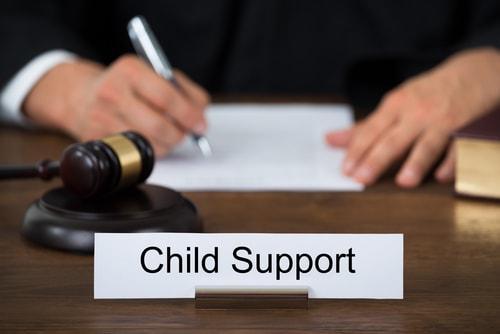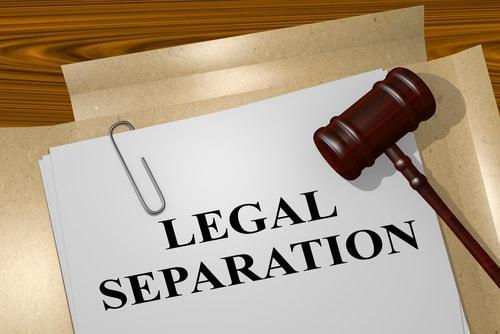Wheaton |
St. Charles |
Sycamore
 630-665-7300
630-665-7300
Recent Blog Posts
What Is a Declaration of Invalidity of Marriage?

Sometimes, a marriage is doomed from the beginning for one reason or another. Some couples may find a glaring incompatibility, while others discover that their marriage is void (or voidable) as a matter of law. While, in theory, any married couple can file for divorce, in some cases, it may be easier or more fulfilling to obtain a declaration of invalidity of marriage in Illinois—especially if there is a legal impediment to your marriage and not just personal differences.
Grounds to Claim Invalidity
In Illinois, there are four grounds on which a person can petition to have their marriage declared invalid:
- The lack of capacity of either party to consent to the marriage due to a factor such as mental illness, fraud, or force;
- The inability of one party to physically consummate the marriage;
- One or both parties being underage and lacking the appropriate permission of their parent or guardian to marry; or
Adopting Your Stepchildren
 Stepfamilies are becoming more and more common in the United States as the divorce rate remains high. While in many cases, the ex-spouse (or other biological parent) will continue to be involved in the lives of his or her children after divorce, sometimes the ex-spouse simply vanishes or passes on. For whatever reason, if one parent ceases to play a role in the lives of his or her children, a stepparent may be able to legally step into that role by adopting the children.
Stepfamilies are becoming more and more common in the United States as the divorce rate remains high. While in many cases, the ex-spouse (or other biological parent) will continue to be involved in the lives of his or her children after divorce, sometimes the ex-spouse simply vanishes or passes on. For whatever reason, if one parent ceases to play a role in the lives of his or her children, a stepparent may be able to legally step into that role by adopting the children.
When Is Stepparent Adoption Permissible?
There are several points that any stepparent must consider in order to legally adopt his or her partner's children. First, they must be legally married to the children's biological mother or father. Up until a couple years ago, this applied to opposite-sex couples only, but it now applies to same-sex couples as well. Second, the law does not permit a child to have any more than two legal parents. In other words, your partner's ex-spouse must either be deceased, vanished, or otherwise agree to sign away his or her parental rights, in order for you to be able to adopt the child. If the child is over the age of 14, he or she must also give consent, and this is taken seriously. Without it, the adoption will not go forward.
Understanding the New Child Support Law in Illinois
 Major revisions have been approved to the way that child support is calculated by courts in Illinois. The topic has been the center of debate for a number of years, and many believe the change is long overdue. Effecitve July 1, 2017, there is an entirely new method of determining how much a supporting parent is required to pay.
Major revisions have been approved to the way that child support is calculated by courts in Illinois. The topic has been the center of debate for a number of years, and many believe the change is long overdue. Effecitve July 1, 2017, there is an entirely new method of determining how much a supporting parent is required to pay.
What Is New About the Law?
The law, which took effect on July 1, amends the existing “percentage of obligor's net income” methodology for child support calculations. Critics have long maintained that such a model is too static, one-sided, and outdated. Under the new law, Illinois will begin using the “income shares” model that is presently in use in many other states.
Under the former law, the way that courts calculated child support for either parent was primarily based on using a fixed percentage of the nonresidential parent's income and the number of children involved in the order. For example, if there was one child to support, the parent without primary residential responsibilities would be expected to pay at least 20 percent of his or her net income in child support. Because those calculations did not take into account the income of the other parent, they produced results, in many cases, that did not sufficiently address the best interests of the children involved.
Tax Issues and Obligations Related to Divorce
 Whether we like it or not, tax issues are a part of any divorce. This is especially complex to navigate when the divorce involves high-income spouses and high-value assets. The stakes are often higher when large marital estates have to be divided, and if it is not done in accordance with relevant tax law, the IRS can take a distressing amount in recompense.
Whether we like it or not, tax issues are a part of any divorce. This is especially complex to navigate when the divorce involves high-income spouses and high-value assets. The stakes are often higher when large marital estates have to be divided, and if it is not done in accordance with relevant tax law, the IRS can take a distressing amount in recompense.
Standard and Complex Questions
Even in an average divorce, there are multiple tax issues that might become apparent. Some of the most common include deciding who will claim the children on future tax returns, determining whether to file as joint/married or single if your proceedings are happening during tax season, answering any residency-related questions, and so on. These same issues often arise in high-value divorces as well, but because the value of the marital estate is higher, it is more common for wealthy couples to discuss such issues beforehand—in a prenuptial agreement, for example. If this is not done, tax considerations may be handled along with the more specific issues at the time of the divorce.
Sexual Harassment Investigation Leads to Firings at Uber
 Over the last few years, ridesharing industry leader Uber has faced a number of significant legal challenges. The San Francisco-based tech firm has been the focus of numerous lawsuits related to the employment status of its driver/partners, the company's background check processes, and other concerns that have made headlines across the country. Now, Uber is reeling once again as an investigation into allegations of sexual harassment has cost at least 20 individuals their jobs.
Over the last few years, ridesharing industry leader Uber has faced a number of significant legal challenges. The San Francisco-based tech firm has been the focus of numerous lawsuits related to the employment status of its driver/partners, the company's background check processes, and other concerns that have made headlines across the country. Now, Uber is reeling once again as an investigation into allegations of sexual harassment has cost at least 20 individuals their jobs.
An Incendiary Blog Post
In February of this year, a former software engineer for Uber published a blog post that drew national attention. Her post outlined several examples of what she considered systemic sexism and sexual harassment that permeated the company's culture. Following the publishing of the post, dozens of reports were made by female Uber employees about their own experiences at the company. All told, 215 reports of sexual harassment were filed, and large-scale boycotts started to take root nationwide—many of them highlighted by the social media tag #deleteUber.
Your Child's Wishes Regarding Parenting Arrangements
 While parents all want to do what is best for their children, including allowing their voices to be heard, sometimes their wishes are not what is in their best interest. Depending on the circumstances, this may also prove to be the case in divorce and parental responsibility proceedings. In many instances, a judge will consider a child's wishes regarding which parent they live with, but a child's wishes are not the deciding factor.
While parents all want to do what is best for their children, including allowing their voices to be heard, sometimes their wishes are not what is in their best interest. Depending on the circumstances, this may also prove to be the case in divorce and parental responsibility proceedings. In many instances, a judge will consider a child's wishes regarding which parent they live with, but a child's wishes are not the deciding factor.
What Does the Law Say?
Illinois law holds that a child's wishes regarding residential living arrangements can be taken into account as long as the child's “maturity and ability to express reasoned and independent preference” is appropriately considered. In other words, the wishes of a child who is better able to express themselves in a manner consistent with them forming an independent opinion will be given more weight than that of a child who simply parrots their parent or older sibling. Generally, this means that older children's opinions will have more impact, but this is not always the case. An extremely articulate younger child might very well have a firm grasp on the situation and could, therefore, be taken more seriously.
Establish Healthy Boundaries During Separation
 The transition from being married to being divorced is not an easy one. You are still technically married but may be living apart from your spouse, and household items are beginning to be divided. Children may begin spending time with both parents separately. There is no perfect way to execute a separation but experts agree that creating healthy boundaries and rules at the beginning of the process can prevent conflict later in the divorce proceedings.
The transition from being married to being divorced is not an easy one. You are still technically married but may be living apart from your spouse, and household items are beginning to be divided. Children may begin spending time with both parents separately. There is no perfect way to execute a separation but experts agree that creating healthy boundaries and rules at the beginning of the process can prevent conflict later in the divorce proceedings.
Be Proactive Instead of Reactive
The best way to avoid conflict with your soon-to-be-ex is to establish rules and boundaries from the very beginning. Sit down with your spouse in a quiet, neutral location and discuss your situation, writing down notes as you go. Consider issues such as:
- Under what circumstances does a spouse have permission to enter the other spouse's residence? It is always better to double check before stopping by at your spouse's residence, even if many of your personal belongings are still there. Tension is high, and surprise visits may create unneeded stress;
Handling Valuable Assets During a Divorce
 Divorce can affect couples from all walks of life, even the financially flush. However, when wealthy people decide to end their marriage, the proceedings can differ somewhat from those who have relatively few assets to divide. For a wealthier couple, there will understandably be a more prolonged discovery period, as well as a focus on ensuring that all assets are properly identified and evaluated.
Divorce can affect couples from all walks of life, even the financially flush. However, when wealthy people decide to end their marriage, the proceedings can differ somewhat from those who have relatively few assets to divide. For a wealthier couple, there will understandably be a more prolonged discovery period, as well as a focus on ensuring that all assets are properly identified and evaluated.
What Is Equitable Distribution?
The primary issue in high-value divorces is that because so much is at stake, each party is more likely to dig in and fight for what they see as their rightful share. In some cases, however, it is not the spouses but the court that decides what is an appropriate distribution. Illinois is an equitable distribution state, meaning that property is not divided 50/50 as it would be in a community property state. Rather, experts help evaluate each asset so that each party may receive a share that is equitable and fair based on the circumstances of the situation.
Options for Dealing With an Unfavorable Family Court Outcome
 Sometimes, cases do not work out exactly the way we think they will. You may not receive the full amount of maintenance or child support that you were seeking, or you might not receive the parenting time you desired. While some decisions cannot be challenged, many if not most can be appealed or petitions may be filed to request reconsideration. In short, in most cases, all is not lost if you receive a denial or other unsatisfactory result.
Sometimes, cases do not work out exactly the way we think they will. You may not receive the full amount of maintenance or child support that you were seeking, or you might not receive the parenting time you desired. While some decisions cannot be challenged, many if not most can be appealed or petitions may be filed to request reconsideration. In short, in most cases, all is not lost if you receive a denial or other unsatisfactory result.
Appeals and Motions
There are two primary methods through which a request to reconsider may be filed in Illinois. Which one you should use depends on the nature of the perceived problem with your case. If you believe that the judge made an error of law, and your attorney raised the proper objection at the proper time, it is appropriate to file an appeal. The Illinois Supreme Court Rules govern the relevant procedure, and the requirements are strict. You must file your appeal within 30 days of the final judgment's entry (or the entry of the relevant order, in some situations), and the record is restricted to questions of law. You may not simply re-litigate your case in a new courtroom.
What Is Legal Separation?
 Divorce is a difficult decision to make. Sometimes, a couple may hesitate on pulling the proverbial trigger even though they are well aware that their marriage is in trouble. If you are in this situation, a legal separation may be an idea, as you receive many of the benefits of divorce without giving up all of the benefits of being married just yet. Be advised, however, that most people “separate” colloquially, meaning that they take no steps to protect their assets like bank accounts or titles to vehicles. Legal separation, by comparison, has specific procedures that must be followed.
Divorce is a difficult decision to make. Sometimes, a couple may hesitate on pulling the proverbial trigger even though they are well aware that their marriage is in trouble. If you are in this situation, a legal separation may be an idea, as you receive many of the benefits of divorce without giving up all of the benefits of being married just yet. Be advised, however, that most people “separate” colloquially, meaning that they take no steps to protect their assets like bank accounts or titles to vehicles. Legal separation, by comparison, has specific procedures that must be followed.
Changes to the Law
Before changes were enacted in 2016, legal separation was used by many couples who did not have sufficient grounds to divorce, or by couples whose religion either prohibited or frowned upon divorce. With the abolition of fault grounds, fewer people use the procedure because obtaining a divorce on the ground of irreconcilable differences is much easier than it was in the past. However, it is still the choice for many who simply cannot make the decision to divorce for whatever reason.


 Read More
Read More





